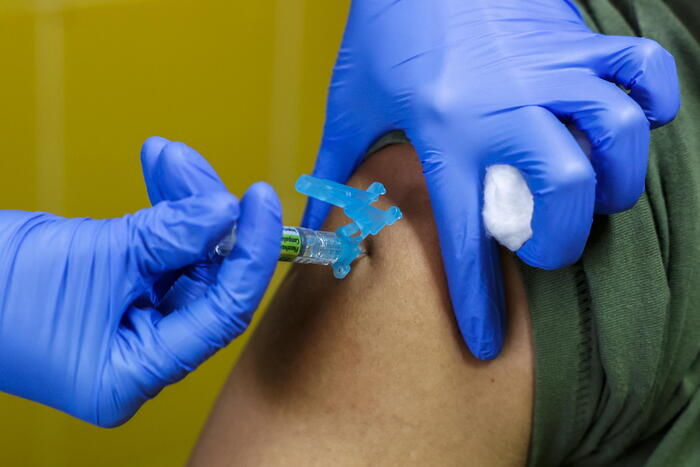"When I heard that, I said to myself that it was a little utopian ..." Like this emergency nurse, switched to intensive care at Cochin hospital at the beginning of the year, many caregivers welcomed with caution Emmanuel Macron's promise on Wednesday evening to increase national capacities to 10,000 intensive care beds.
Currently, more than 5,109 patients suffering from Covid-19 are treated in these advanced units, for around 7,000 beds available.
At the peak of the crisis, on April 8, 2020, a sad record of 7,148 residents had been established.
“This figure of 10,000 is the one we have been working on since the first wave,” emphasizes Étienne Fourquet, president of the National Union of Anesthesiologists and Resuscitators of France (Snarf), the most optimistic of the interlocutors we contacted.
This consists of doubling the number of beds initially existing.
This has already been done in Marseille, which has reached an occupancy rate of almost 195%.
We have to push the walls and find the staff.
This last point is the most difficult.
Two nurses are needed at all times for one patient in a Covid intensive care unit.
"
READ>
"The feeling of coming back to square one": at the heart of the intensive care unit of the Pompidou hospital
“This figure of 10,000 is the one we have been working on since the first wave,” emphasizes Étienne Fourquet, president of the National Union of Anesthesiologists and Resuscitators of France (Snarf), the most optimistic of the interlocutors we contacted.
This consists of doubling the number of beds initially existing.
This has already been done in Marseille which has reached an occupancy rate of nearly 195%.
We have to push the walls and find the staff.
This last point is the most difficult.
Two nurses are needed at all times for one patient in a Covid intensive care unit.
"
"The president will learn resuscitation in two weeks?"
With this in mind for growth, the Mondor hospital in Créteil (Val-de-Marne) is opening a new unit with 60 intensive care beds.
This does not prevent the head of the infectious disease department of the establishment, Jean-Daniel Lelièvre, from being very annoyed by the objective: “It seems completely unrealistic.
It seems that we have the equipment and the physical space in the hospitals, but what will be lacking is the staff.
The president seems to say that we will find reinforcements, but he will learn resuscitation himself in two weeks?
It is not my habit to criticize, but you should not announce anything.
"
READ ALSO>
Mandatory transfer of patients: "Unthinkable", according to doctors
The professor raises the ultimate threat, that of sorting out patients eligible for intensive care: “The problem is to make people believe that we can increase our capacities indefinitely.
This is not true.
We risk being faced with choices and the government must say so.
Going to 10,000 beds is a third more than the peak of last year.
We do not know how we did it and today the staff are exhausted while the victims of other diseases are in a much more serious state because of breaks in care.
"
"This has repercussions on the quality of care"
Thierry Amouroux, spokesperson for the National Union of Nursing Professionals said he was "very dissatisfied", hearing the president demand "an additional effort", and referred to "10% of nurses on sick leave, depression or burnout".
The nurse, stationed at Saint-Louis hospital, also points to the collateral damage: “When we collect caregivers to put them around the beds, we close operating theaters.
When you postpone 5% of the interventions, it is only cosmetic surgery, but at 40%, it starts to get serious, and when the ARS posts a target of 80% deprogramming, it touches on oncology.
"
Coronavirus Newsletter
Update on the Covid-19 epidemic
Subscribe to the newsletterAll newsletters
To "equip" 10,000 beds, it will therefore be necessary to recruit nurses from other services and train them.
"Those who have just arrived are poorly trained and this has repercussions on the quality of care," explains the Parisian intensive care nurse whom we have contacted.
The AP-HP offers two days of very dense and very short theoretical training.
Then, some are trained in four or five days against one to two months usually, even if there is always at least one experienced referee nurse present.
"
This Thursday, Olivier Véran, the Minister of Health, mentioned the possible peak of 10,000 patients for the end of April.
The Prime Minister, Jean Castex, explained to the National Assembly wanting to use "all possible levers", in particular "by mobilizing all possible reinforcements, in particular city professionals, retirees, health students, the 26,000 professionals registered with the civilian health reserve, but also the military reserve ”.















